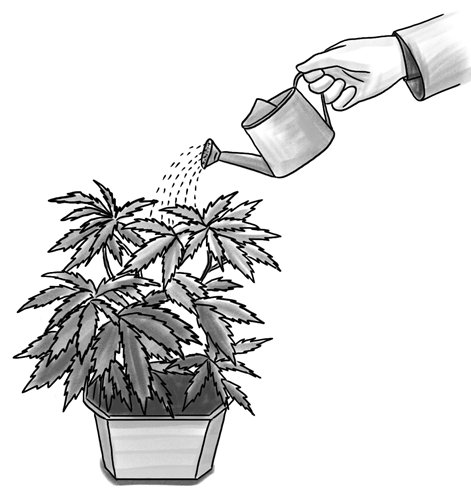China’s effort to standardize industrial hemp can help address rising US competition

Illustration: Xia Qing/GT
China's exports of industrial hemp products have been growing fast in recent years, mainly because they are more cost effective than overseas industrial hemp products. However, in the future, Chinese hemp exports might take a hit from the rising industrial hemp industry in the US.Industrial hemp has a number of applications in China. First, the fiber is used in textiles. The seeds are used for oil and protein raw materials, which can be further used in Chinese herbs and health food. Also, cannabidiol (CBD) extracts can be used to produce medication to help relieve cancer symptoms and certain neurological disorders.
Among the industrial hemp products that China produces nowadays, all CBD products are exported, mainly to US and European markets. Some Chinese processing companies, such as BJM in Shenyang, capital of Northeast China's Liaoning Province, also export industrial hemp fiber and textile products to overseas markets.
An important reason why exports of hemp products from China have risen is the relatively cheap planting cost. In the US, most hemp is planted indoors, which adds costs for lights and electricity. In China, however, industrial hemp is mostly planted outdoors, which saves cost a lot.
But now, as more countries are liberalizing their laws on industrial hemp planting, this may exert a negative impact on China's hemp exports as more people become involved in legal hemp production.
The EU enacted laws for industrial hemp in the early 1990s, followed by countries including Canada, Australia, New Zealand and South Africa. US President Donald Trump also signed a bill in December 2018 that legalized hemp farming, according to a report from MarketWatch.
US-grown hemp has a higher concentration of CBD (about 10 percent) compared with Chinese industrial hemp that only contains about 1 or 2 percent CBD, which means that US industrial hemp processors might be a strong competitor for Chinese companies in terms of high-purity CBD products for export.
But in terms of industrial hemp fiber and textile products, there won't be any threat from overseas companies in the short term. This is because China still holds an advantage in the initial processing technology of industrial hemp fiber.
Nevertheless, if there is a severe impact on China's hemp exports to the US, Chinese companies can also turn to alternative markets in Asia.
Another problem with China's industrial hemp industry is suppressed domestic demand. For example, in Southwest China's Yunnan Province, up 300,000 hectares of land is suitable for hemp cultivation, and one planting cycle is only about four to six months. Therefore, the problem is not with China's planting capacity, but with insufficient domestic demand.
Overall, China's industrial hemp industry is developing at a slower speed compared with that overseas. For one thing, domestic markets do not have high-level recognition of industrial hemp products, and there is very little advertising. For another, the domestic hemp industry has not received enough attention and support, whether in terms of capital or policy.
For example, there's very little research on the medicinal value of CBD in China, yet there has been a lot of research overseas.
A good sign is that in recent years, the Chinese government has been making efforts to legalize and standardize the domestic industrial hemp industry.
According to a report from an industry news site jrj.com in February, Northeast China's Jilin Province will become the third province in China (after Heilongjiang and Yunnan) to allow industrial hemp planting. In fact, more precisely we should say that the government is putting Jilin into stricter legal management. I believe the government has made this decision as it has been influenced by the liberalization policies in Europe and the US, while it has seen for itself the rapid development of the industrial hemp industry both at home and abroad. This, I believe, would prompt the domestic hemp industry to develop in a healthy way.
The article is compiled based on an interview with Yang Ming, a research fellow at the Yunnan Academy of Agricultural Sciences. bizopinion@globaltimes.com.cn
